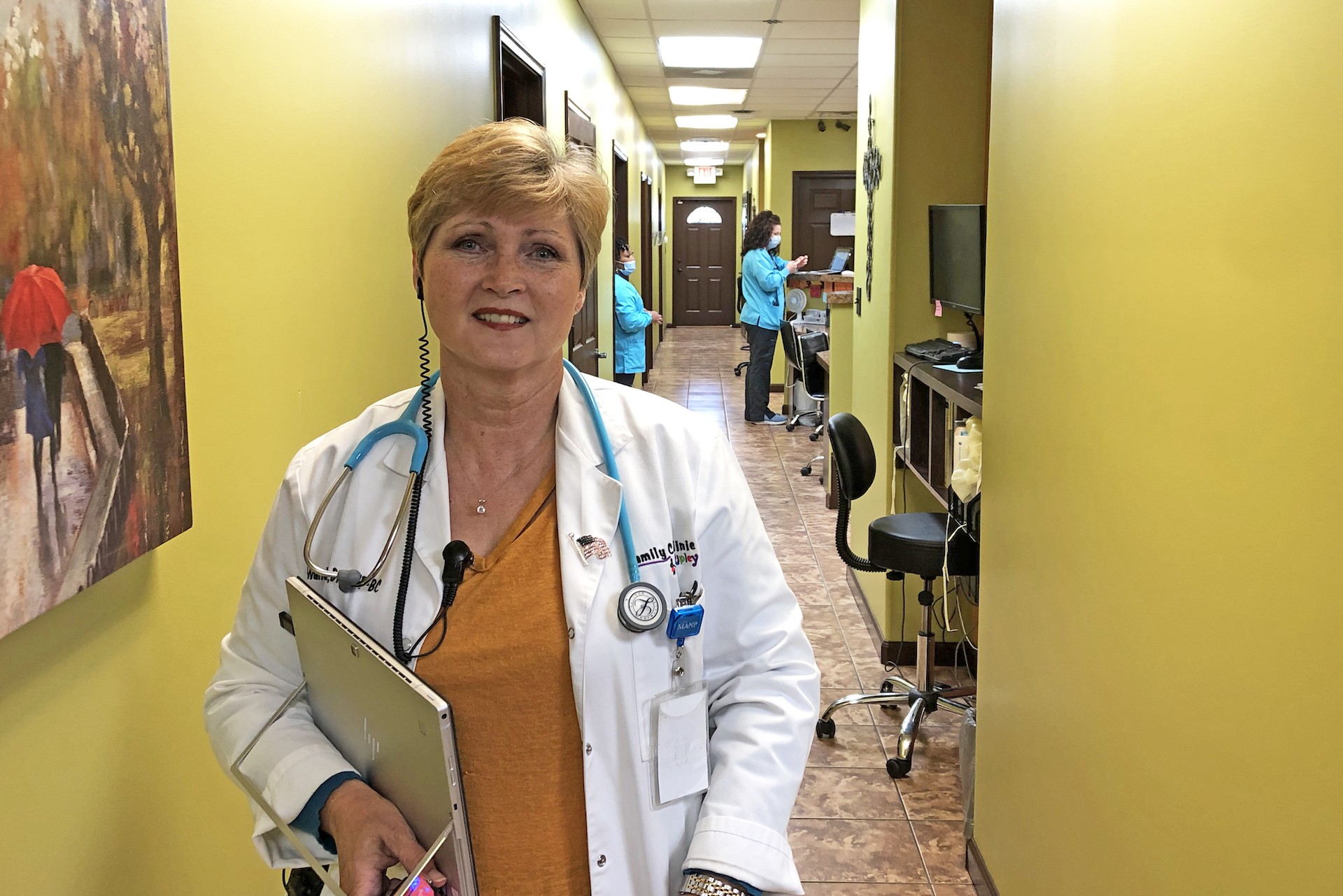New Report Answers Concerns About Nurse Practitioners

Fears about quality of care are “greatly exaggerated”
Empower Mississippi has released a new report, Nurse Practitioners and the Quality of Care, which answers concerns about the quality of care provided by nurse practitioners, and more particularly about the quality of their education. These concerns arise as the legislature considers allowing nurse practitioners to practice independently.
The report looks at two indicators of the quality of training and the quality of care provided by nurse practitioners. The first is the quality of their education, including the amount of hands-on training they receive in order to become a nurse practitioner. The other indicator is whether the risk to patients is higher when nurse practitioners are allowed to practice on their own.
Among the report’s findings on the quality of education:
- Becoming a nurse practitioner requires at least a master’s degree in nursing. Some programs, including at the University of Southern Mississippi, require a doctorate. This is in addition to their training to become a Registered Nurse, which is required in order to even begin nurse practitioner training.
- All nurse practitioners must pass the national certification exam in the specialty in which they have trained, the vast majority of which are in primary care.
- In order to take the national exam, nurse practitioner candidates must have completed a significant number of hours of supervised, hands-on experience as part of their training.
- NP programs that offer online coursework require the same amount of supervised, hands-on clinical training as is required for students who take classes in person.
To measure the risk of allowing nurse practitioners to practice independently, known as “full practice authority,” the report looked at studies that compare malpractice claims for nurse practitioners in states that allow full practice authority and in those that do not.
“The reason we chose this as an objective measure of risk is that malpractice insurance companies put their own money at risk when they insure nurse practitioners,” said Forest Thigpen, Senior Advisor at Empower Mississippi. “They have a vested interest in determining whether nurse practitioners pose a greater risk when they work with full practice authority.”
The report, authored by Conor Norris, an expert in occupational regulation, found the following:
- A study using data from the National Practitioner Data Bank, which gathers reports of malpractice claims for an array of healthcare professions, found that when states allow NPs to have full practice authority, they do not experience an increase in malpractice claims against NPs.
- A report by the Institute for Safe Medication Practices analyzed malpractice incidents against NPs who had malpractice insurance through insurance company CNA. Over the five years studied, 35.7% of the NPs with malpractice claims practiced in physician offices, while 16.4% practiced in NP-owned offices, and the claims against NPs in physicians’ offices were twice as large as those for NPs that practiced in NP offices.
The report highlights several peer-reviewed studies, and lists many more, showing that the quality of care provided by nurse practitioners within the scope of their training equals or exceeds the quality of care provided by physicians.
Forest Thigpen, Senior Advisor at Empower Mississippi, said, “This is not in any way suggesting that nurse practitioners are as highly trained as doctors. But it does suggest that the fears about the quality of care provided by nurse practitioners are greatly exaggerated.”
Thigpen said when doctors encounter conditions beyond their expertise, they refer patients to doctors with relevant training and experience. He said nurse practitioners do the same.
“Full practice authority does not allow nurse practitioners to act beyond the scope of their training,” Thigpen said. “It removes unnecessary restrictions on their ability to offer the care they are trained to provide.”
Mississippi has the second worst physician shortage in the nation. Half of the physicians in the state are in four metro areas, and four counties have no physicians at all. The U.S. Department of Health and Human Services estimates that states could reduce their primary care shortages by two-thirds by easing restrictions that keep NPs from independently treating patients.
More than half the states in the U.S. now provide NPs with full practice authority. Last year, two more joined the mix, bringing the total to 26 states plus the District of Columbia that have removed this barrier to healthcare.
Currently, there are several bills in the legislature that would grant full practice authority. Senate Bill 2796 is authored by Sen. Kevin Blackwell, and House Bills 727 and 796 are authored by Rep. Donnie Scoggin and Rep. Stacey Hobgood-Wilkes, respectively.
Read the full report here.